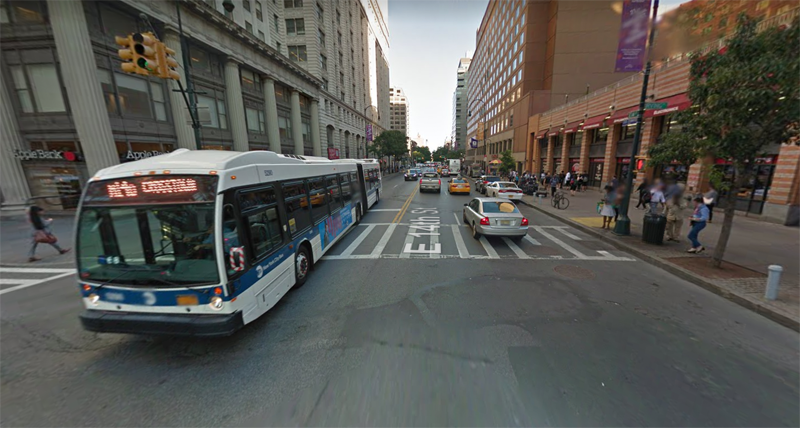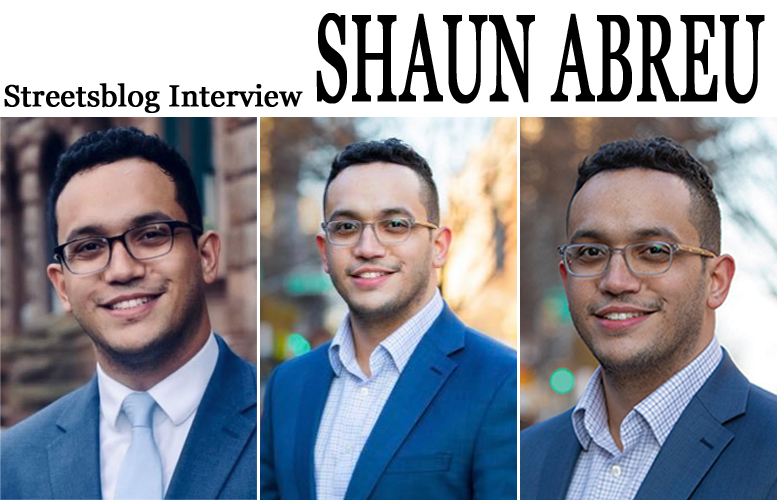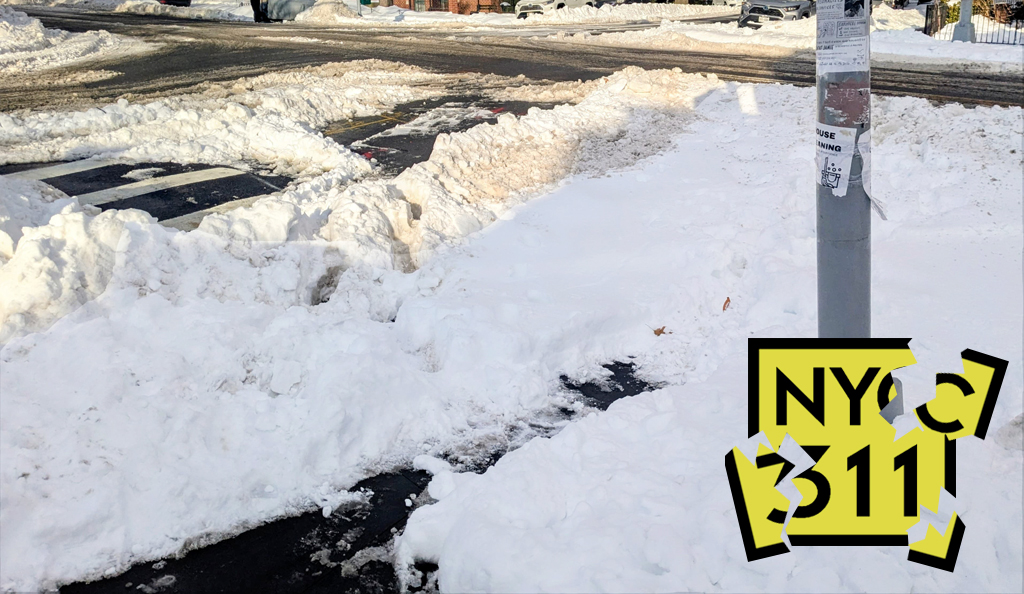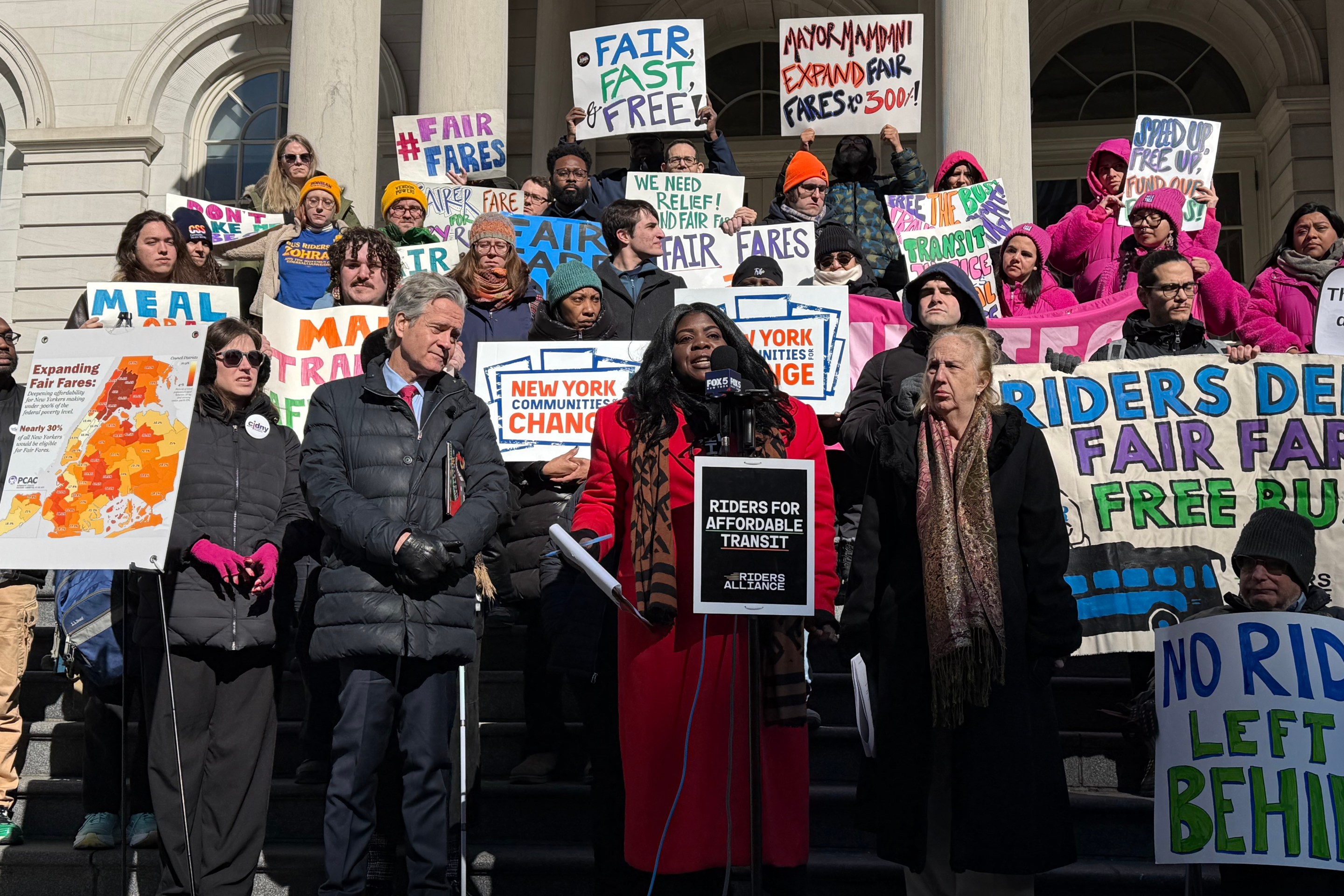Irony alert: A coalition of Manhattan landowners is using state environmental law to fight a city plan to improve public transit on 14th Street and cycling on 12th and 13th streets.
The 14th Street Coalition — which comprises property-owner groups in Tony Chelsea, the West Village and the Flatiron District — says that the Department of Transportation's proposed "busway" violates state environmental law because the agency didn't conduct a serious assessment of the impact that banning cars from 14th Street would have on neighboring residential streets.
"Closing 14th Street to vehicular traffic would not only cause horrific traffic jams on 12th Street, 13th Street, 15th Street, 16th Street, 17th Street, 18th Street (a street with an MTA bus depot at the corner of Sixth Avenue), 19th Street, and 20th Street, it would also cause traffic on north-south avenues including Eighth, Seventh, Sixth, Fifth, Fourth, and Third Avenue, and Broadway, and Park Avenue," the suit, filed by lawyer Arthur Schwartz. "The traffic will bring with it air pollution and noise pollution."
The original busway plan was drawn up more than a year and a half ago after the MTA announced it would completely shut down the L train between Eighth Avenue in Manhattan and Bedford Avenue in Brooklyn for 18 months of repairs. That plan was scrubbed earlier this year in favor of a nights-and-weekend repair schedule that retains limited L-train service — but the DOT pushed ahead with its busway plan, which now will allow through trucks and car pick-ups and drop-offs between Third and Ninth avenues.
The city said the plan will improve bus travel times for tens of thousands of long-suffering transit riders on a congested corridor. And it will argue in court that the DOT did conduct a substantive review.
But that's not good enough for the 14th Street group.
"DOT has come up with a new 'rationale' for the Corridor Plan, since the original rationale was no longer viable," the suit alleges. "That rationale (making bus service faster) amounts to no more than PR material. The result, Petitioners contend, will be increased vehicular traffic on all east and westbound streets between 12th Street and 20th Street, bringing with it air pollution, noise, and vibrations endangering the 19th century buildings which line these blocks, challenging the character of the Greenwich Village, Chelsea, and Flatiron communities, and likely causing delay in the crosstown transit of emergency vehicles."
The reference to "PR material" is ironic, given that the lawsuit at times reads like its own press release.
"The government [is] thumbing its nose at the views of residents and the character of three neighborhoods in order to speed up busses by one or two miles per hour and promote use of bicycles," Schwartz's papers read.
But a legal expert at Transportation Alternatives' said Schwartz is misreading the State Environmental Quality Review Act, referred to in court papers as SEQRA.
"Under SEQRA, the city and NYC DOT are required to consider environmental impacts equally with social and economic factors," said Marco Conner, the group's co-deputy director. "The social and economic benefits are clear — in a city where eight of 10 commute by transit, and with the slowest bus travel times of a major U.S. city, all will benefit from faster and more reliable bus service on a major bus route."
Conner added that Schwartz is not only wrong on the law, but wrong in predicting disaster from the busway.
"The broader environmental benefits from facilitating efficient mass transit over promoting harmful single-occupancy car travel is also established beyond question," he said. "Understandable fears of so-called spill-over traffic into nearby streets have repeatedly been proven wrong. This lawsuit is in effect attempting to delay environmental, social and economic progress in NYC, especially along 14th Street."
And TransAlt and other groups have also repeatedly questioned one of the other premises of Schwartz's suit, namely that the city doesn't listen to community complaints. Indeed, street safety activists often have the opposite complaint — that the city bends far too backwards to placate communities with lengthy public processes when the DOT is only required by law to show that it has a rational reason for pursuing streetscape changes. This part of the debate is reminiscent of an ongoing lawsuit by several business owners on Morris Park Avenue in the Bronx, where the city hopes to redesign the roadway to improve safety.
That lawsuit led to a judge ordering the city to delay its plans as the larger issues of the case are considered. Schwartz's papers also seek a temporary restraining order against the busway, which is set to begin on July 1.
Supporters of the busway fired back that Schwartz, who identifies himself as a progressive, is using a regressive legal approach on behalf of wealthy property owners to fight transit for the working class and the poor.
"The suit is misguided," said Danny Pearlstein of the Riders Alliance. "The thing has been studied to death. The city's incredibly cautious lawyers have signed off on it. The state environmental review law was not intended to be used to block transit. There are tens of thousands of transit riders who would be affected if this lawsuit succeeds — and those people don't have the resources to sue."
Pearlstein agreed that the city never did complete a formal environmental impact statement for the busway, but added that it's unclear under state law if one is necessary. And he drew a larger point.
"Given this unprecedented year of climate change legislation, it is incumbent on us all to do what we can to shrink our carbon footprint — and offensive environmental litigation like this get in the way of making the changes we need to make," he said. "It's ironic in a progressive community to use this as weapon to get your way over transit riders. The city will fight this suit, but at the end of the day, it's not the city's Corporation Counsel who is left waiting 20 minutes for a bus because Arthur Schwartz won't allow a busway through his neighborhood."
UPDATE: After initial publication of this story, Law Department spokesman Nick Paolucci issued this statement:
The claims have no merit. DOT stands by this pilot project which will improve pedestrian safety along a Vision Zero Priority Corridor with seven priority intersections and will improve bus speeds by as much as 30 percent for the 27,000 daily riders. DOT followed all applicable procedures and should be allowed to complete this initiative. ... DOT complied with all the required reviews for this pilot project."






